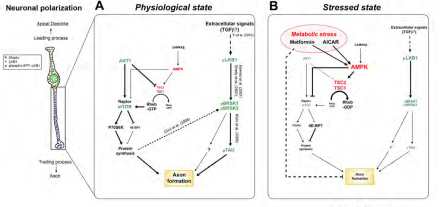
Tyisha Williams, Ph.D.
Assistant Professor of Biology
Wilkes University
Succeeding as a scientist at a primarily undergraduate institution
As a young person growing up in Brooklyn, New York, I was fortunate to see two Americas. The first was a hard-working-class of people with a strong sense of community. However, one did not have to stray too far to find oneself part of a second, larger community that was in great need. One of these needs was quality medical care. These two Americas made an indelible impression on my life, which played a significant role when I decided to enroll in college as a pre-med major. I wanted to make a positive impact on the health and wellness of the people within my community.
However, during my sophomore year and the following summer, two major events altered the course of my career. The first was when my Aunt Ella, with whom I was extremely close, lost her fight with lung cancer that metastasized to the brain. The second was an opportunity to participate in the NSF-supported Minority Graduate Education (MGE) Program for undergraduates, which is where I fell in love with research. These two experiences diverted my career trajectory to becoming a scientist. I believed that I could do something I loved, while simultaneously helping to find a cure for cancer, so no other family had to experience the loss and pain that I experienced when my aunt died.
After college, I enrolled in the Ph.D. program in Genetics and Human Genetics at Howard University. I was primarily interested in nicotine dependence and why lung cancer preferentially metastasized to the brain. Although my advisor, Dr. Rick Kittles, worked on prostate cancer, I knew the tools he employed in his work would be useful for understanding my own research questions. My thesis ultimately focused on identifying genetic variants in African American populations that influenced susceptibility to nicotine dependence, which could increase their incidence of lung cancer.
For my postdoctoral work, I wanted to expand my skills from just identifying mutations to testing their functional consequences. I was a postdoc at UNC-Chapel Hill Neuroscience Center in Dr. Jay Brenman’s lab. During my postdoctoral training, I was able to conduct functional studies using Drosophila and mouse model systems. During this time, I also had the opportunity to teach undergraduate students at North Carolina Central University. At the completion of my postdoc experience, I had all the tools and knowledge to teach, to really tackle the questions I was interested in, and to begin my career at as an independent researcher.
I chose to take a position at a primarily undergraduate institution (PUI) because I believed that I would truly enjoy a career that involved both research and teaching. For others considering this path, two things are important to know: 1) you must enjoy teaching undergraduates and 2) you should expect your research to progress at a slower pace than you may be used to. For me, the slower pace is balanced by the pleasure of working with students at a very early stage in their career trajectory, at a point when my mentoring can help lay a secure foundation, especially for students from underrepresented groups.
While the research pace is slower, there are specific funding streams designed to support research at these institutions. One of these is the Academic Research Enhancement Award (AREA) Program (R15), which is a research grant that funds meritorious research as a vehicle to provide students with a research experience that can prepare them for a career in science. It is important to recognize that research done on an R15 does advance the field and fills gaps in knowledge, but the mechanism is designed with the personnel, resources, and environment of PUIs and other moderate research institutions in mind. When preparing my application, I took care to scale the grant to be consistent with my full teaching load and the number of hours an undergraduate could reasonably spend in the lab.
My R15 application was, I believe, ultimately successful because of my participation in the 2012 NINDS Grant Writing Workshop for Diversity Investigators. The workshop connected me with senior investigators and the experience facilitated the idea to form a personal grant-writing mentoring committee. It also taught me a very important lesson: write for the reader and not for yourself. Don’t assume that the reader can read between the lines—whatever you want the reader to know, you should spell it out for them. This also transformed the way I teach my classes and how I make my students think of questions.
I have similarly benefited from mentoring through the Society of STEM Women of Color and the NINDS-funded Broadening the Representation of Academic Investigators in NeuroScience (BRAINS) Program. Both programs provided invaluable personalized professional development, helping individuals be successful by their own definition of success, not a generic version. Equally important, they served as a safe space for me to be seen as a whole person and to discuss my experience as a black woman in academic neuroscience. These programs have been truly transformative for my career and I recommend participation in both.
Current Research
My research focuses on understanding the role of metabolism in normal brain development and maintenance as well as disease states such as neurodegeneration, diabetes, and cancer using cutting-edge biochemical, cell biological, and genetic approaches. The primary goal of my laboratory focuses on characterizing the contribution of AMP-activated protein kinase (AMPK) in the brain. As a regulator of energy metabolism, the AMPK signaling pathway is altered during many disease states.
Metformin, a widely-used type II diabetes drug, has been shown to activate AMPK. Diabetics treated with metformin have a significantly lower incidence of cancer compared to patients treated with insulin. Furthermore, several tumor suppressor genes are implicated in the biochemical pathways of AMPK. Therefore, it is plausible that suppressed activity of AMPK may be pivotal in the development and/or progression of various forms of cancers.

